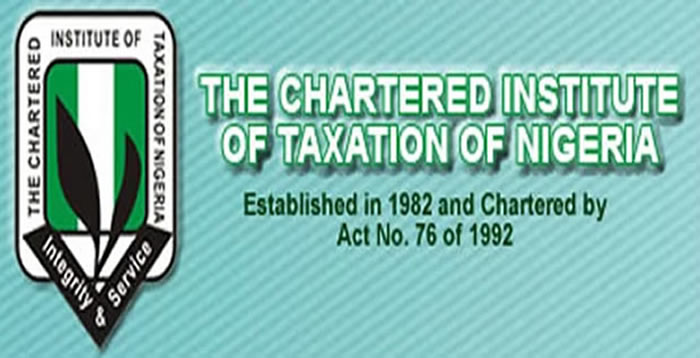Paragraph 1: The Imperative of Tax Reform in Nigeria
Nigeria, Africa’s largest economy, has long grappled with an over-reliance on volatile oil revenues, leaving its fiscal health vulnerable to global market fluctuations. Recognizing the urgent need for diversification and sustainable revenue generation, the country has embarked on a significant tax reform initiative. The centerpiece of this effort is a comprehensive tax reform bill, currently awaiting final legislative approval. This bill holds the potential to reshape Nigeria’s economic landscape, fostering stability and reducing dependence on the unpredictable oil sector. The Chartered Institute of Taxation of Nigeria (CITN), a leading voice in tax policy and administration, has strongly advocated for the bill’s passage, emphasizing its transformative potential.
Paragraph 2: CITN’s Vision for Tax-Driven Development
The CITN, under the leadership of its President, Mr. Samuel Agbeluyi, views taxation not merely as a revenue-generating mechanism but as a crucial instrument for national development, peace, and stability. This perspective underscores the institute’s belief in the power of effective tax policies to drive economic growth, improve public services, and enhance the overall well-being of citizens. Agbeluyi emphasizes that a robust and equitable tax system is essential for Nigeria to achieve its aspirations of becoming a leading economic power in Africa. This vision is at the heart of the CITN’s 27th Annual Tax Conference, themed "Taxation for Development: Policies, Law, and Implementation," scheduled for May 12-16, 2025, in Abuja.
Paragraph 3: The Promise and Challenges of the Tax Reform Bill
The proposed tax reform bill represents the most comprehensive overhaul of Nigeria’s tax system in recent history. While acknowledging that the bill is not without its imperfections, Agbeluyi hails it as a significant step forward. The legislation addresses key areas of tax administration, aiming to streamline processes, enhance efficiency, and promote greater transparency. It also seeks to broaden the tax base, ensuring a more equitable distribution of the tax burden. However, challenges remain, particularly at the sub-national level, where inconsistencies in tax regimes and practices threaten to undermine the reform efforts. Agbeluyi cautions against the collection of unauthorized taxes by some states, highlighting the need for harmonization and adherence to established legal frameworks.
Paragraph 4: Building Consensus and Political Will for Reform
The success of the tax reform initiative hinges on securing broad-based support and fostering political will at all levels of government. Agbeluyi emphasizes the importance of collaboration between the federal government, state governments, and local authorities to ensure effective implementation of the new tax laws. He calls on lawmakers to prioritize the bill’s passage and urges political leaders to champion its implementation. The CITN has actively engaged with key stakeholders, including the President, governors, and ministers, to build consensus and generate momentum for the reform agenda. The upcoming tax conference will serve as a platform for further dialogue and engagement, bringing together policymakers, tax professionals, and other stakeholders to discuss the critical role of taxation in national development.
Paragraph 5: Fostering a Culture of Tax Compliance
The CITN recognizes that the effectiveness of tax reforms depends not only on sound legislation and efficient administration but also on fostering a culture of tax compliance among citizens. Agbeluyi emphasizes that taxation should not be viewed as a punitive measure but as a civic duty and a contribution to national prosperity. He believes that Nigerians are inherently law-abiding and will readily comply with tax obligations if they are assured that their contributions are being utilized judiciously for public good. Building trust between taxpayers and the government is therefore paramount to ensuring the success of the reform efforts. The CITN advocates for greater transparency and accountability in the management of public funds, demonstrating to citizens the tangible benefits of their tax contributions.
Paragraph 6: Charting the Course for Sustainable Development through Taxation
The 27th Annual Tax Conference of the CITN is poised to play a pivotal role in shaping the future of tax policy and administration in Nigeria. The conference will bring together leading experts and stakeholders to delve into the intricacies of tax reform, exploring best practices and strategies for optimizing tax systems to drive development. The conference will culminate in the issuance of a communique, providing guidance to policymakers and charting a course for long-term national development through effective and equitable taxation. The CITN is committed to working closely with the government and other stakeholders to ensure that the tax reform agenda translates into tangible improvements in the lives of Nigerians, paving the way for a more prosperous and sustainable future.


